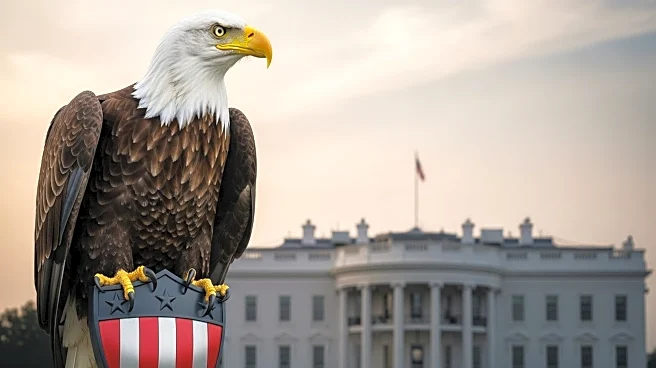What's Happening?
The White House has issued a new directive aimed at bolstering protections for U.S. nationals wrongfully detained abroad. This initiative, authorized by President Trump, seeks to address the coercive tactics used by foreign adversaries who detain Americans as political pawns. The directive empowers the Secretary of State to designate countries as State Sponsors of Wrongful Detention if they engage in or support the wrongful detention of U.S. nationals. This designation allows the U.S. to impose sanctions and travel restrictions, among other measures, to deter such actions. The order is grounded in the Robert Levinson Hostage Recovery and Hostage-Taking Accountability Act, emphasizing the U.S. commitment to safeguarding its citizens and maintaining its leadership on the global stage.
Why It's Important?
This directive underscores the U.S. government's commitment to protecting its citizens from becoming leverage in international disputes. By designating countries as State Sponsors of Wrongful Detention, the U.S. can apply diplomatic and economic pressure to secure the release of detained nationals. This move is significant for U.S. foreign policy, as it reinforces the country's stance against the use of wrongful detention as a tool of coercion. It also highlights the importance of international law and human rights, potentially influencing how other nations handle similar situations. The directive could impact diplomatic relations, especially with countries that have a history of detaining foreign nationals for political reasons.
What's Next?
The Secretary of State will review and potentially designate countries under this new directive, which could lead to the imposition of sanctions and other measures. The U.S. government will likely engage in diplomatic efforts to negotiate the release of wrongfully detained nationals. This initiative may prompt reactions from affected countries, possibly leading to diplomatic negotiations or tensions. The effectiveness of these measures will depend on the international community's response and the willingness of designated countries to comply with U.S. demands for the release of detained individuals.









